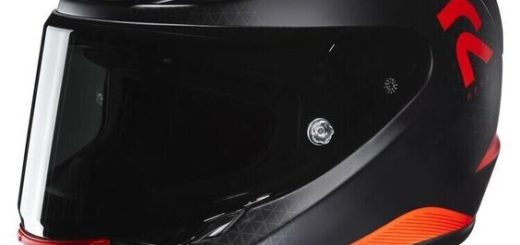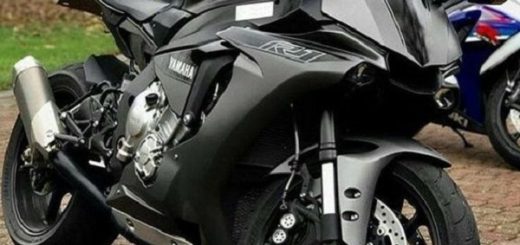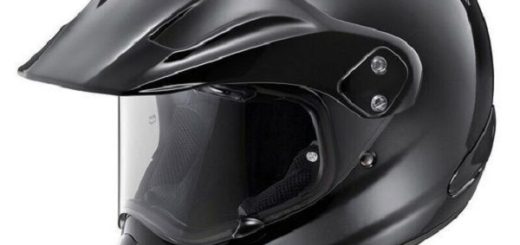How to Store Your Motorcycle Helmet?
Your motorcycle helmet is your most crucial safety gear. It protects your head in case of an accident, and choosing the right helmet is an essential investment. But just as important as selecting the perfect helmet is knowing how to store it properly. Improper storage can compromise the integrity of your helmet and reduce its effectiveness in protecting you.
This comprehensive guide will equip you with the knowledge and best practices for storing your motorcycle helmet. We’ll explore different storage methods, factors to consider, and common mistakes to avoid. By following these tips, you can ensure your helmet remains in top condition, ready to safeguard you on every ride.
Understanding Motorcycle Helmet Construction: Why Storage Matters

Motorcycle helmets are marvels of engineering, balancing safety with comfort and weight. The outer shell, typically made of lightweight yet strong materials like polycarbonate or composite materials, absorbs impact during a crash. The inner liner, constructed from crushable polystyrene foam, distributes the force of the impact to protect your head.
Here’s why proper storage matters:
-
Extreme Temperatures: Exposing your helmet to extreme heat or cold can damage the shell and compromise its strength. High temperatures can cause the shell to become brittle, while freezing temperatures can make it less flexible.
-
Sunlight: Ultraviolet (UV) rays from sunlight can degrade the helmet’s outer shell and liner materials over time, accelerating wear and tear.
-
Chemicals and Contaminants: Exposure to harsh chemicals, cleaning products, or fumes can damage the helmet’s materials and compromise its integrity.
-
Weight and Pressure: Hanging your helmet by the strap or placing heavy objects on top can put undue stress on the shell and liner, potentially causing deformation.
By storing your helmet properly, you can safeguard its protective qualities and extend its lifespan.
Finding the Perfect Place: Choosing a Motorcycle Helmet Storage Solution
Now that you understand the importance of proper storage, let’s explore different storage options:
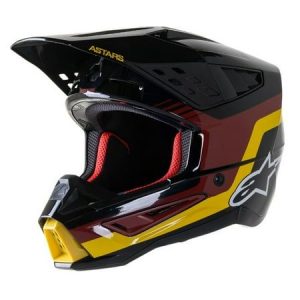
-
Helmet Bag: A dedicated helmet bag is a convenient and portable storage solution. Look for bags made from breathable materials to prevent moisture build-up inside the helmet. Some helmet bags offer additional compartments for storing gloves or other riding gear.
-
Helmet Lock: A helmet lock allows you to secure your helmet to your motorcycle when parked. Choose a lock with a weatherproof design to protect it from the elements. While not a replacement for secure storage indoors, a helmet lock can be a deterrent to theft during quick stops.
-
Helmet Stand: A helmet stand provides a dedicated and stable storage solution for your helmet at home. Look for stands made from sturdy materials that won’t tip over easily. Some stands offer ventilation features to prevent moisture build-up.
-
Shelves and Cabinets: If you have limited space, storing your helmet on a shelf or in a cabinet is also an option. Ensure the shelf or cabinet is high enough to prevent the helmet from being knocked off. Avoid storing the helmet near heat sources or harsh chemicals.
Consider your riding habits and available space when choosing a storage solution. If you ride frequently and need a portable option, a helmet bag might be ideal. For home storage, a helmet stand or dedicated shelf provides a more permanent solution.
Creating a Safe Haven: Essential Motorcycle Helmet Storage Tips
Once you’ve chosen your storage solution, here are some key tips to ensure proper helmet care:

-
Clean Your Helmet Regularly: Before storing your helmet, remove any dust, dirt, or sweat by wiping it down with a damp microfiber cloth. For a deeper clean, consult your helmet’s owner’s manual for recommended cleaning procedures.
-
Dry Your Helmet Thoroughly: Never store a wet or damp helmet. Moisture can lead to mold or mildew growth inside the liner, which can be harmful and unpleasant. Allow the helmet to air dry completely before storing it.
-
Unfasten the Visor: Leave the visor slightly open to allow for air circulation and prevent moisture build-up inside the helmet.
-
Store in a Cool, Dry Place: The ideal storage location for your helmet is a cool, dry place away from direct sunlight and extreme temperatures. A closet, basement, or gear room are all suitable options.
-
Avoid Contact with Chemicals: Store your helmet away from harsh chemicals, cleaning products, or gasoline. These substances can damage the helmet’s materials.
By following these simple storage practices, you can extend the lifespan of your helmet and ensure it remains ready to protect you on every ride.
Common Mistakes to Avoid: Keeping Your Helmet Safe
Even the most conscientious riders can make mistakes when it comes to helmet storage. Here are some common pitfalls to avoid:
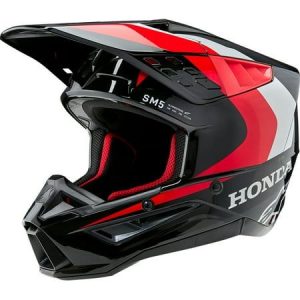
-
Hanging by the Strap: Never hang your helmet by the strap. This puts excessive stress on the strap’s attachment point and can lead to weakening or tearing over time.
-
Storing in Direct Sunlight: Avoid leaving your helmet in direct sunlight for extended periods. Park your motorcycle in a shaded area or cover your helmet with a cloth if you know it will be exposed to sunlight.
-
Throwing it in the Trunk: The trunk of your car can get very hot, especially on sunny days. Avoid storing your helmet in the trunk for prolonged periods.
-
Using Harsh Cleaning Products: Stick to gentle cleaning products specifically designed for motorcycle helmets. Harsh chemicals can damage the helmet’s materials and compromise its effectiveness.
-
Ignoring Warning Signs: Regularly inspect your helmet for signs of wear and tear, such as cracks, deep scratches, or a loose or damaged liner. If you notice any damage, replace your helmet immediately.
By being aware of these common mistakes, you can ensure your helmet storage practices promote optimal safety and longevity.
Investing in Protection: When to Replace Your Motorcycle Helmet
Motorcycle helmets are designed to absorb a single impact. After a crash, even if the helmet appears undamaged on the outside, the liner might be compromised and may not offer adequate protection in a future accident. Therefore, it’s crucial to replace your helmet after any accident, regardless of the severity.
Here are some other signs that indicate your helmet needs replacement:

-
Age: Most helmets have a lifespan of 5-7 years. If your helmet is older than this, consider replacing it even if it shows no signs of damage. The materials degrade over time, and the helmet might not offer optimal protection.
-
Loose or Worn Liner: The helmet’s liner is essential for absorbing impact. If the liner feels loose, compressed, or shows signs of wear, it’s time for a new helmet.
-
Difficulty Fastening the Visor: If the visor mechanism becomes difficult to operate or doesn’t close securely, it could indicate damage to the helmet’s shell. Replace the helmet for optimal safety.
Remember, your helmet is your first line of defense in a crash. Don’t compromise your safety by holding onto a damaged or outdated helmet.
Peace of Mind on Every Ride: The Importance of Proper Helmet Storage
By following the storage tips and avoiding the common mistakes outlined in this guide, you can ensure your motorcycle helmet remains in top condition, ready to protect you whenever you hit the road. Here’s a quick recap of the key takeaways:
- Store your helmet in a cool, dry place away from direct sunlight and extreme temperatures.
- Choose a breathable storage solution like a helmet bag or a well-ventilated stand.
- Clean and dry your helmet thoroughly before storing it.
- Avoid hanging your helmet by the strap or placing heavy objects on top of it.
- Inspect your helmet regularly for signs of wear and tear and replace it if necessary.
Taking the time to properly store your helmet is a simple yet significant step towards maximizing your safety on every motorcycle ride. Invest in a quality helmet, store it carefully, and experience the peace of mind that comes with knowing you’re well-protected.
